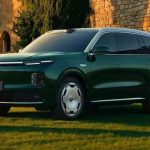
Everyone is talking about e-mobility in light of climate change, and Volkswagen will offer an all-electric vehicle with the ID.3 starting in 2020, with the goal of making the new, emission-free driving technology appealing and affordable to a wide range of people.
The cost of pure electric cars, such as the ID.3, plays a critical role in their competitiveness. This applies to buying, operation, and resale of an EV. So, is switching to e-mobility both environmentally and economically worthwhile?
In the vast majority of markets, both the purchase and use of electric vehicles have become considerably less expensive in recent years.
Falling battery costs, more efficient production, government incentives, and comparatively cheap electricity compared to gasoline or diesel are the primary reasons for this. The most important aspects in detail:
1. Acquisition
In Germany, the pure electric ID.3 models – available from summer 2020 – will be available at significantly lower prices than the predecessor e-Golf model. While the latter was available from 36,900 euros with a WLTP range of 231 kilometers, the ID.3 “Pure” model is available for under 30,000 euros – and that with a range of 330 kilometers, i.e. almost 100 kilometers more. Also, the ID.3 “Pro” has a range of 420 kilometers, with a purchase price of less than 35,000 euros – still significantly lower than the e-Golf. High economies of scale resulting from the use of the modular e-drive systems and the further development of battery technology make this possible.

The updated environmental bonus, offered in Germany since February 2020, ensures further savings. Pure electric basic models up to a list price of €47,600 (gross) are now subsidized with €6,570 (gross); for basic models up to €77,600 (gross) the lower subsidy rate of €5,570 (gross) applies.
The bottom line is that the Volkswagen ID.3 will be available in Germany from 23,430 €. This is noticeably below the price level of comparable combustion engines such as the Golf Life (see graph). Even the more expensive versions with larger batteries will be very competitive in terms of purchase price. Conclusion: While the purchase of an e-car was previously more expensive than a comparable combustion engine, the picture with the ID.3 is now turning.
2. Service life
In terms of running costs, the ID.3 scores with clear benefits. For example, electricity costs per month are around 40 euros below the fuel costs for petrol or diesel vehicles.

Although the costs of wear and tear are somewhat higher for electric vehicles (especially since optimum range can only be achieved with more costly tires with optimized rolling resistance), these are more than compensated for by lower costs for insurance, vehicle tax and maintenance. For example, the ID.3 does not require an oil change and only needs to be taken to the workshop for inspection every two years – regardless of mileage. In terms of insurance, the ID.3 with its fully comprehensive class 17 level is on average three classes better than comparable combustion engines, which can mean savings of around 200 euros per year, depending on the no-claims class and mileage.
Overall, the ID.3 has a running cost advantage of around 50 euros per month or 600 euros per year over comparable combustion engine models.
3. Residual value
In the past, e-cars were somewhat less stable in value than their combustion engine counterparts. This was partly due to the low market volume (there was hardly a used car market for e-cars) and partly to the rapid development of battery technology. This will change with the new generation of e-cars: Demand for used battery vehicles suitable for everyday use has been rising for some time – a trend that is likely to continue in the coming years.

The ID.3’s range and charging capacity are sufficient for many customers, and battery technology will also develop more slowly in the coming years, so that there will no longer be a major discrepancy between new and used e-cars. The eight-year battery warranty (over 160,000 kilometers) offers additional protection.
Experts are therefore forecasting residual values for the ID.3 will be roughly on a par with those of comparable oil burners.
4. Total Cost of Ownership
In the overall balance of acquisition costs and running costs, the ID.3 scores very well. Depending on the model, it is sometimes even significantly lower than what customers have to pay for a comparable combustion engine model. This price advantage is also due to the government purchase premium. In the long term, however, the e-car will be absolutely competitive even without this support.






